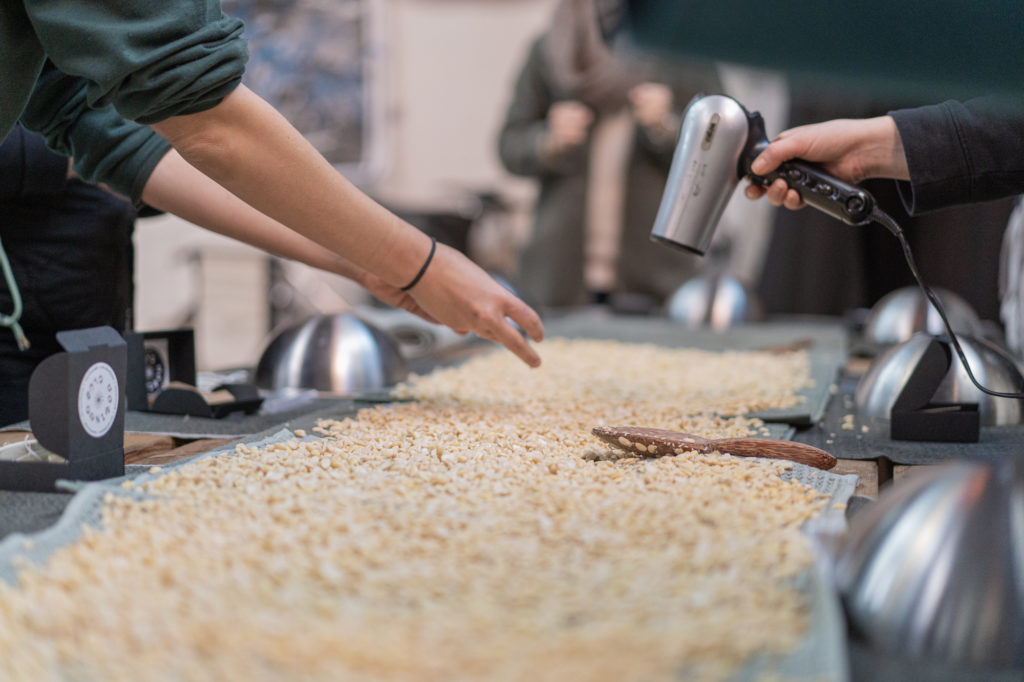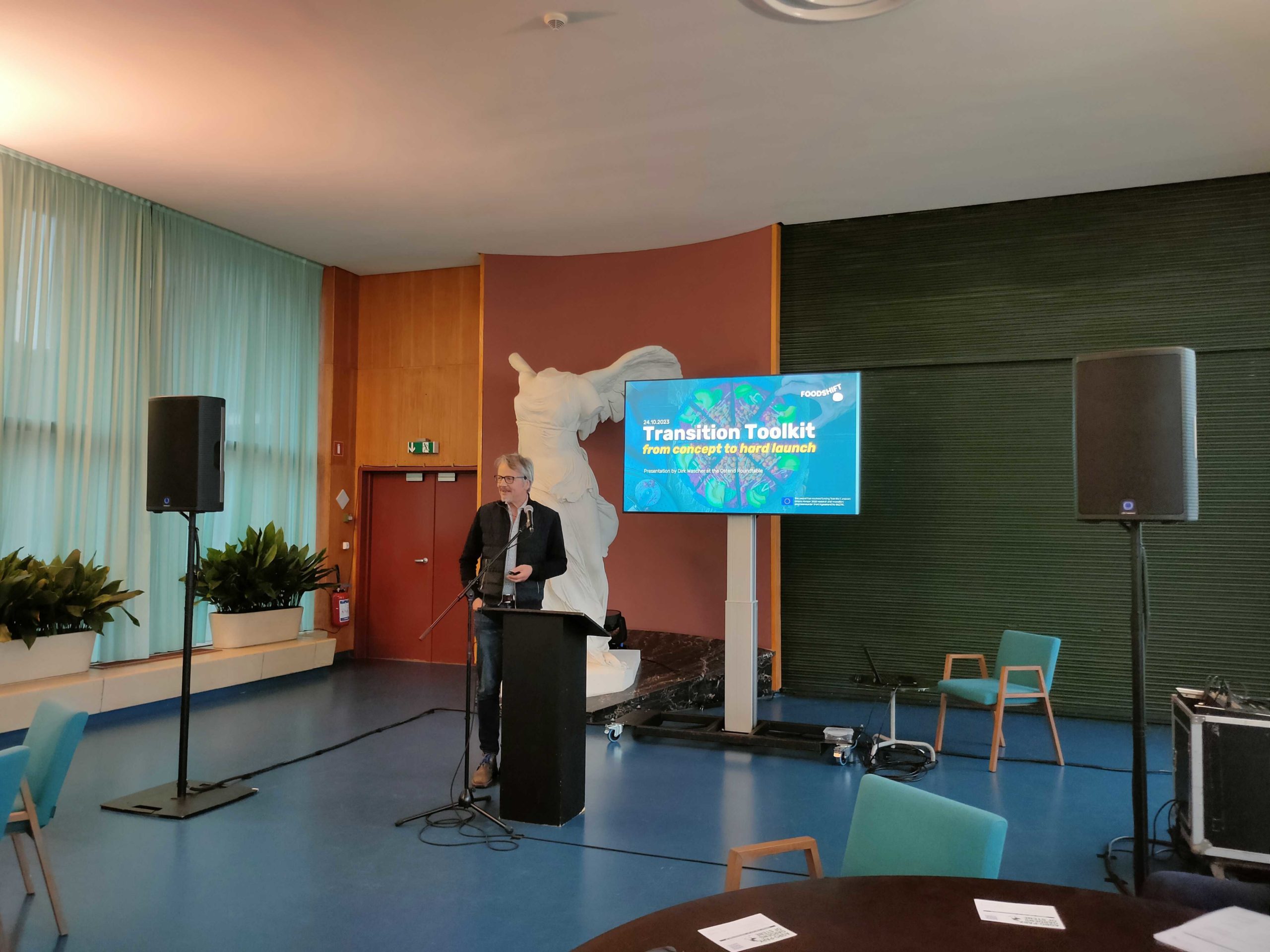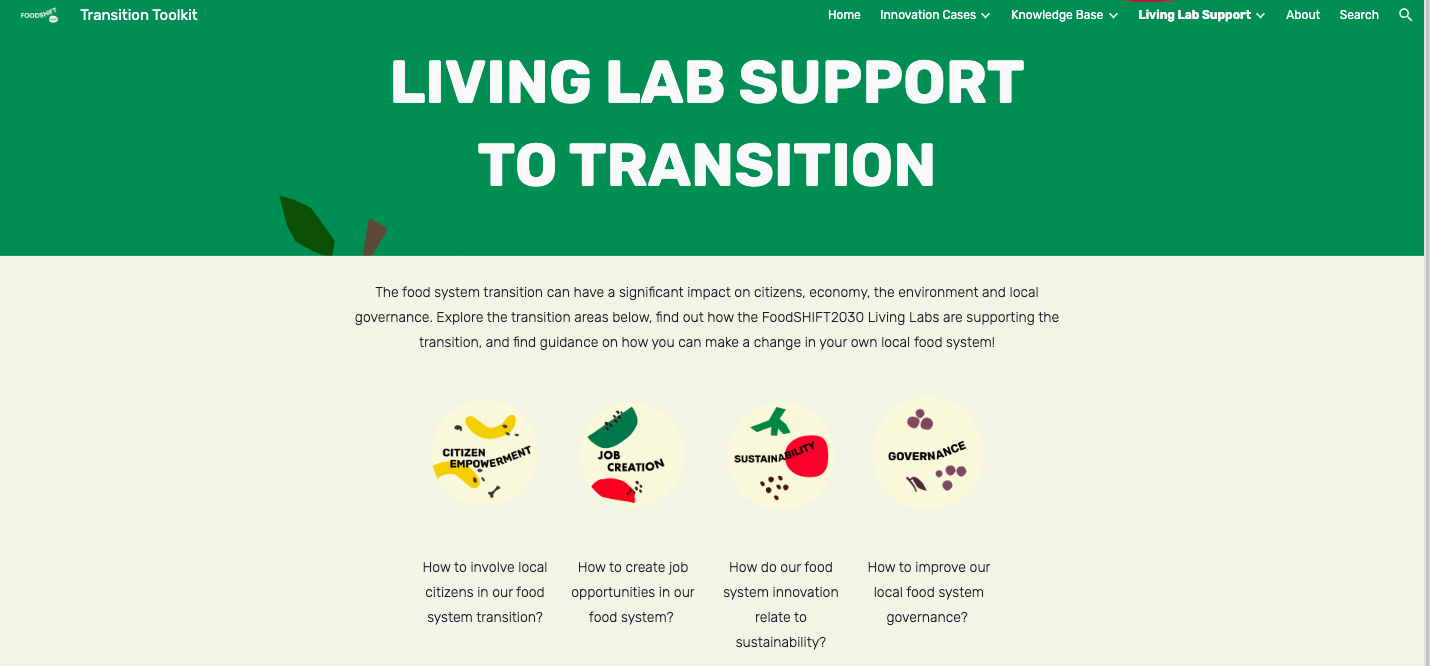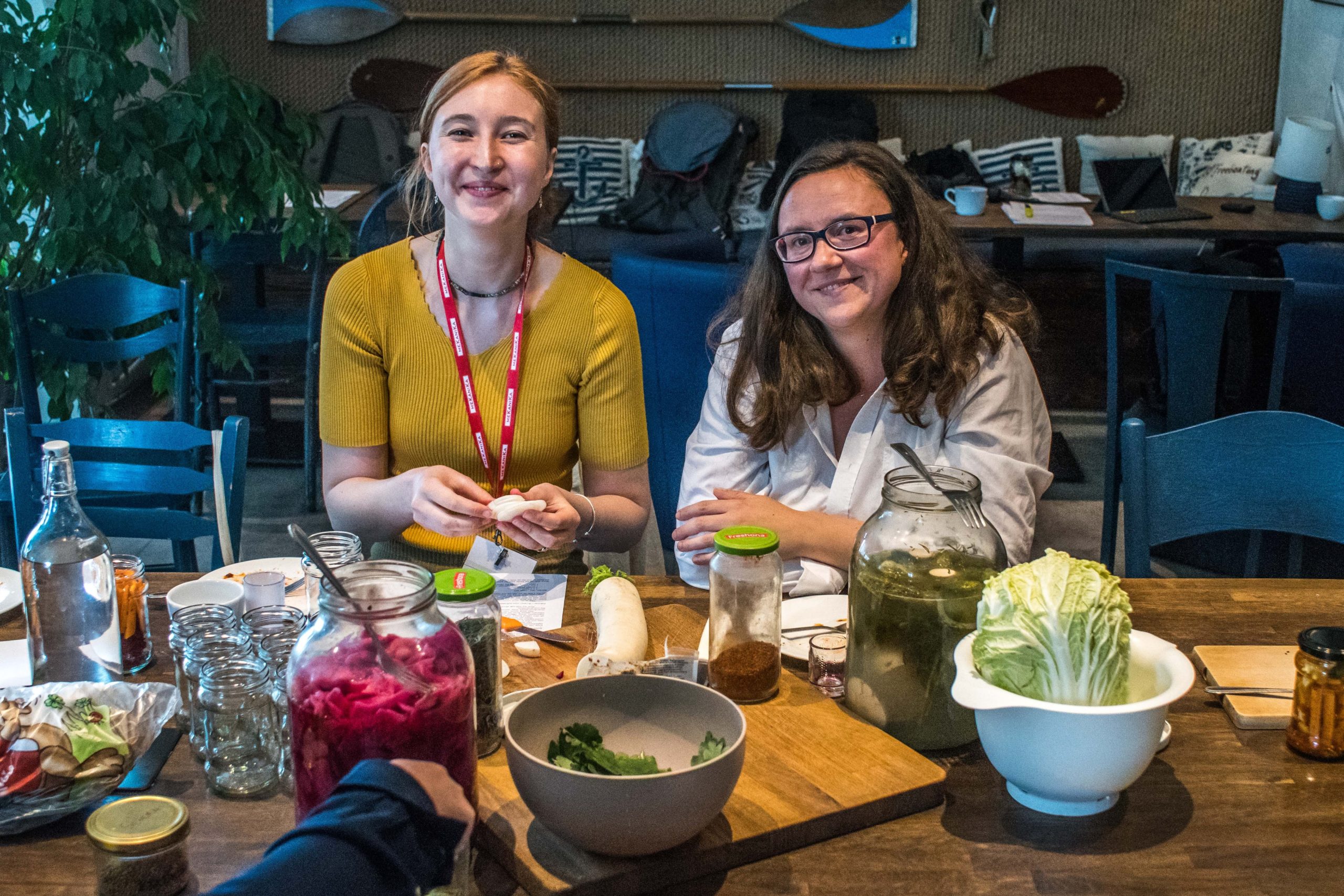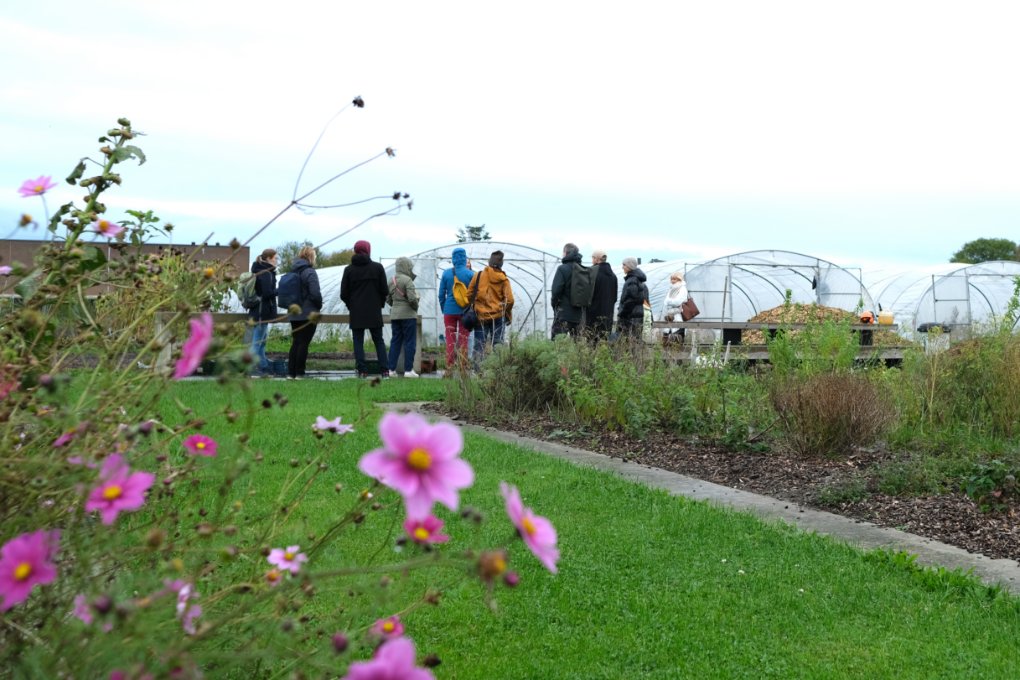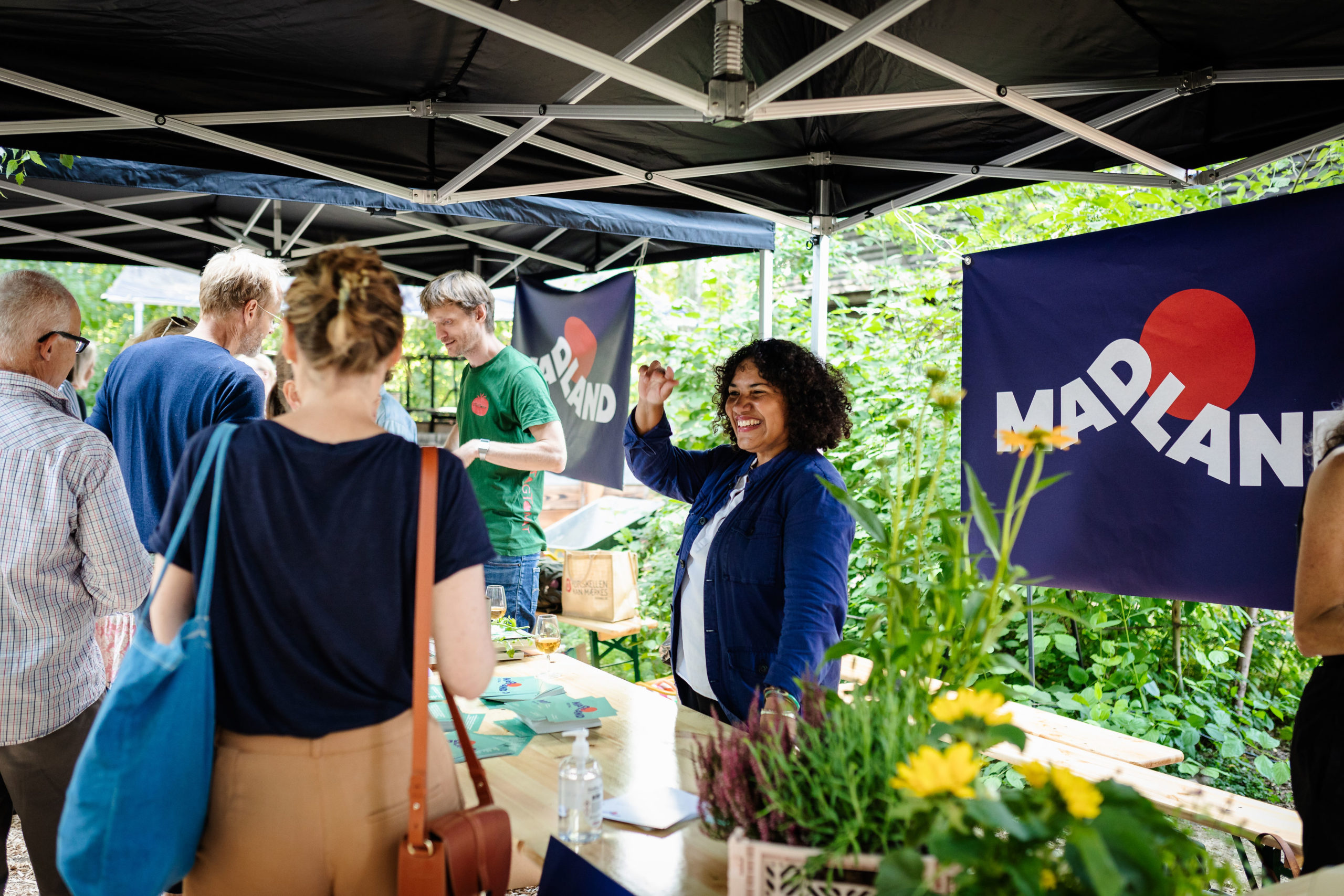Barcelona’s story: Food Tech 3.0 Lab
13 December 2023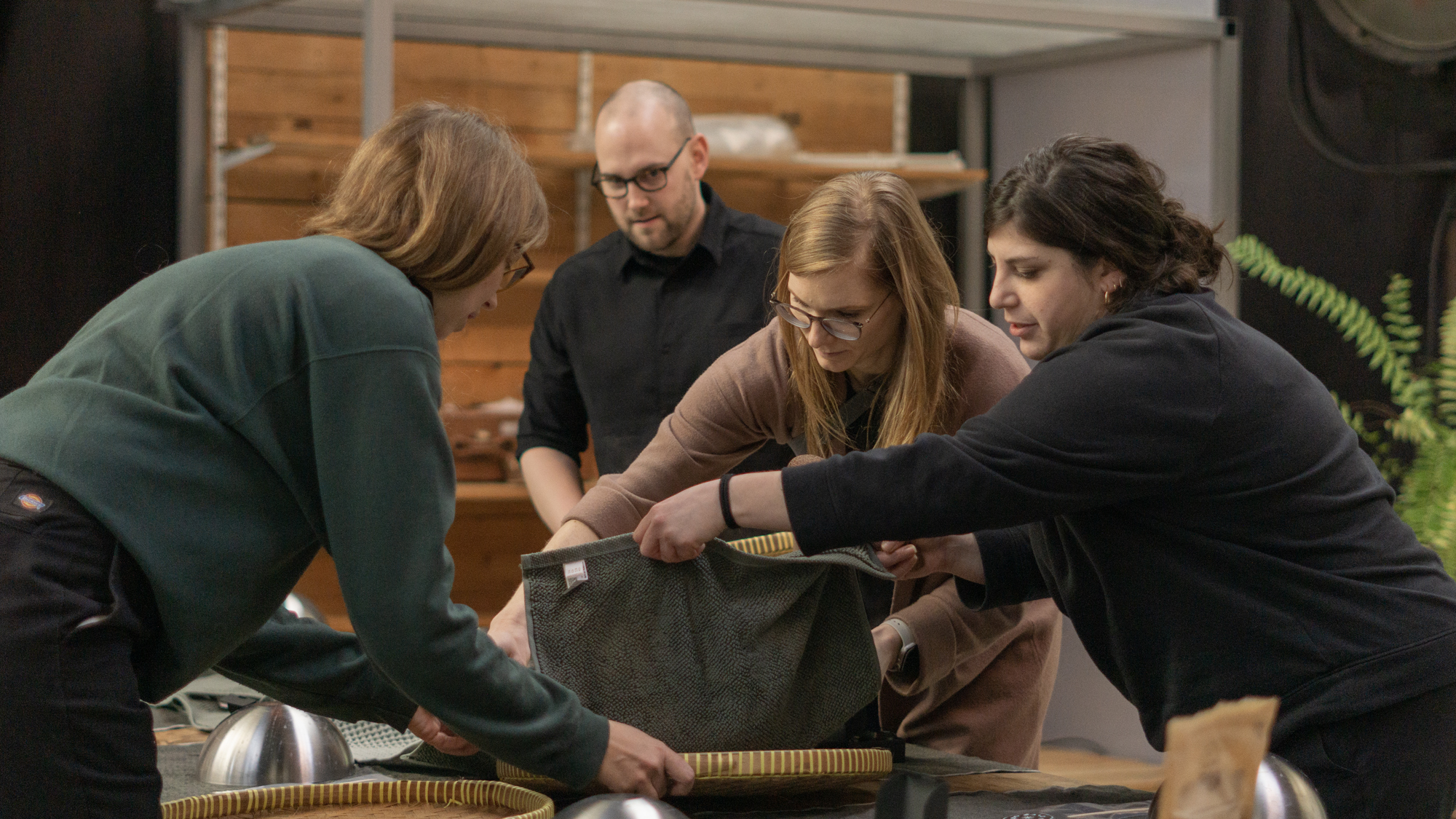
This was Food Tech 3.0, updated!
Four years ago nine city-regions took on the challenge to establish FoodSHIFT Accelerator Labs. In this final blogpost, the Barcelona Lab reflects on the journey and development made during the whole project, through an interview to the Barcelona Lab coordinators. Explore the Transition Toolkit to to learn more about the other Lab’s experiences, Barcelona’s city’s reports on innovation and governance and more.
Building on the previous summary of the acceleration programme for local food tech innovators, Barcelona FAL has now started an updated version of its work, which continued throughout the FoodSHIFT 2030 project.
Key take-aways: Summary
- Barcelona’s focus was on accelerating citizen-driven, local food tech projects
- They joined the project to help connect Distributed Design and the maker movement with the food system
- They were proactively trying to reach different types of stakeholders, particularly focusing on communicating a co-created vision of food technology through a variety of events and
- Challenges were for example the general unfamiliarity with food tech and a lack of public understanding of local, citizen-driven food tech beyond the mainstream food tech, supporting innovators who were mostly in need of funding and support on political issues, which weren’t areas of support our pilot could assist in, and the lack of knowledge and support in the area of business development in the early idea stages
- Greatest successes were for example to develop a definition of food technology that was based in co-creation practices and the needs of the local community and seeing local innovators thrive
- For a city wanting to embark on a similar journey, the recommendation is to go slow when integrating in the local food network and identifying and co-defining food tech and possible responses with the local community. Have a look at what your local maker space is doing!
Interview to the Barcelona Lab Coordinator
? Learn more about this story by reading the interview with the Fab Lab Barcelona team:
1.What was your FAL focus within FoodSHIFT2030?
Our focus was to support the technological and social development of emerging food tech projects (local key and developed by citizens) in any of the stages of the local food system.
2. Why did you join FS2030 initially?
In one hand, to better understand how the maker movement could integrate and collaborate with the food system. One the other hand, one of our creative talents in the Distributed Design Platform network helped us connect to the opportunity of joining the project, believing it was a way to connect Distributed Design and maker principles to food.
3. How was your process of working with your focus area within the duration of the project?
The process was eye-opening. It was exciting to begin to link to the local food ecosystem as well as getting to know the work that our peers in the maker movement are doing in the realm of food.
The process was quite revealing. We have been able to observe that there is an outstanding interest in the local population aimed at developing technological-social projects and that in fact, they need support to transfer the idea of something abstract to the concrete terrain through prototyping. For us, this discovery process was organic and quite revealing in order to design our food strategy based on this information.
4. Think for example of how you started your FAL, the steps you took to drive your area of focus forward and why you took those steps, the people and organisations you involved and why
- Challenging– from getting to know the local ecosystem outside of food tech, it seems they needed the most support in funding and political issues, which weren’t areas of support our pilot could assist in
- However, the food tech initiatives that we onboarded, we were able to support them in the areas of commuinty development and technology
- Fab Lab Barcelona was the host, leader, and secretary so our capacity to reach out to certain stakeholders was more challenging– especially within the political realm. However, we were proactive in trying to reach different types of public, particularly focusing on communicating a co-created vision of food technology (together with our advisory board) through manners like local workshops, the innovation and stakeholder conference, and Food Tech 3.0 showcase during 2021, the year Barcelona was the World Capital of Sustainable Food, other city events, like La Mercé, and through the Food Tech 3.0 Gitbook.
5. How did you work within the different impact pathways?
Citizen empowerment
- Everything that we did to transfer the knowledge from our own Lab, as well as trying to connect the knowledge from our network, including our FELs and the Fab Lab and Fab City network
- The acceleration program– supporting initiatives in going from an initiative to a community champion that can continue empowering others
- Gitbook
- Webinars about community and technology
- Participation in Barcelona’s local festivities (La Mercé, Festa de la alimentacio sostenible 2022)
- MakerFaire Rome, Bali Fab Fest, MakerFaire Barcelona
Job creation
- Stakeholder conference and Food Tech 3.0 Showcase employed all local providers within Barcelona´s food ecosystem
- The gifts and table cloths from la taca d’oli
- LEKA cooking with food from Ma Condiments and Vilagreens
- AbonoKM0 composting everything
Sustainability
- Supporting small, local actors is social and environmental and economic sustainability
- Connecting the innovators with other actors in the local ecosystem
- The Gitbook
Food System transition
- Not only bringing food tech to the conversation to local actors that typically don’t see themselves with food tech, but helping them envision a new type of food tech that doesn’t follow the typical big tech narrative
- Engaging makerspaces and Fab Labs with the food system transition
- Horizontal scaling through our work with FoodSHIFT pathways in trying to bring our work from foodshift2030 into classroom curriculum
6.What were the greatest obstacles in your process, if any?
Another obstacle was the general unfamiliarity (e.g. at a consortium level and while meetinglocal stakeholders) with food tech and when there was familiarity, that it was associated with mainstream food tech, like meat being grown in petri dishes or big ag like Monsanto.
Time availability and timings: Our community often felt like they were a brain drain and were not getting direct benefits back in a timely manner. Additionally, the lack of funding for the participation of the advisory board, especially given the long timeline.
The 2019 Covid crisis was one of the biggest obstacles for the acceleration programme, since we couldn’t meet in person. This was a constrain for the social learning process and knowledge sharing, especially between innovators.
The lack of funding mechanisms was another obstacle to helping the initiatives jump from the prototyping phase to the commercial phase. Another obstacle was the lack of knowledge and support in the area of business development from the early stages, since that is not the focus of FAL Barcelona in itself. However it was evident that if we want to bring in innovations successfully in the future , it is necessary to have experts dedicated to the business development area.
7. How did you overcome those obstacles or how are you planning on overcoming them?
We learned a lot through peer exchanges with the 8 other FALs, as well as the extended consortium, on how to address these challenges.
Then, more specifically, as mentioned in earlier questions, we worked tirelessly to co-create a new definition for the food technology (creating the “food tech 3.0 concept”) that the local food ecosystem wanted to see with the invaluable input of our advisory board and previous related projects’ approach at the Fab Lab. Then the question from there was working on education and knowledge transfer about that vision, which we did through all of the in-person and online events we took part in at local and global levels, and particularly in the Gitbook resource we put together, which we hope will continue to inspire others who are working in developing food technology that is citizen-driven, open, ecosystemic, just, and regenerative.
Regarding funding, we tried to be judicious when we asked for unpaid stakeholders to contribute and found ways to try to compensate them as we could. We also allotted 300 euros per innovator for their acceleration process, to be dedicated to technical materials or workshop/event participation.
With business, we are looking to the broader Fab Lab and Fab City Networks, including our three FELs in Hamburg, Milan, and Paris, as well as the Distributed Design Platform community, particularly to find answers about opensource business models.
8. What or who really helped you in your process?
As mentioned before, we learned a lot through peer exchanges with the 8 other FALs, as well as the extended consortium.
Our advisory board’s contributions were absolutely invaluable and we were fortunate to be able to do knowledge sharing exchanges with them. They helped us co-create the definition of food technology that reflected what the local community needs– two examples that are particularly important here were involving “low tech” and ancestral wisdom as concepts of technology.
Our innovators were also superheroes. They educated us on different types of food technology, shared their methods and practices, enriching each other’s work as well as our understandings.
Our FELs– the folx at Ars Longa & Fab City Grand Paris in Paris; the New Production Institute and Fab City Hamburg in Hamburg; and Open Dot in Milan. Together, we are supporting, developing, and spreading the word about food technology developed through fab labs, makerspaces, and fab cities, and sharing about the methodologies that we use.
9. What resource (website, book, newsletter, organization …) did you use the most to propel your FAL focus area?
We relied a lot on the collective intelligence of the local food ecosystem to establish our FAL and visibilise the Food Tech 3.0 concept. We were also inspired by Barcelona’s city activities during its tenure as the 2021 World Capital of Sustainable Food, in which we were active participants. This culminated in the Stakeholder Innovation Conference and Food Tech 3.0 Showcase, which we used as moments to share the Food Tech 3.0 concept, the potential for makerspaces and Fab Labs to engage with food, the work of our innovator ecosystem, and our advisory board’s perspective on how food tech 3.0 fits into Barcelona’s local narrative.
In order to continue to exchange knowledge throughout our ecosystem (i.e. Fab Labs, makerspaces, and Fab Cities), and build on the Food Tech 3.0 concept horizontally, we also generated a digital resource: The Food Tech 3.0 Gitbook.
This is a living resource that compiles inspirations, learnings, examples, and further conversations around food technology through our work with the Food Tech 3.0 advisory board, our innovators, our FELs, the FoodSHIFT2030 community, Fab Lab Barcelona’s own existing and past projects, and more.
The purpose of the gitbook is to share a vision for food technology which places citizens at the center of the food system transformation.
Who is this resource for?
?For individuals: we hope this resource serves to help you imagine a present in which food technology is an accessible asset you can use to produce, consume and recycle food yourself.
?For communities: we hope it can serve as an entry point for connecting you to food technology that might meet your needs.
?For food technology makers: we hope it gives you ideas on how you might engage with tenets of food citizenship and citizen-driven innovation, open source, holistic sustainability, justice and equity and working ecosytsemically.
?Finally, for Fab Labs, makerspaces & Fab Cities: we hope it helps you understand the potential role our spaces can play in advancing food technology for a food system transition
10. How was it to work with local innovators in your city region?
Very inspiring– we really managed to find areas of development together in an organic and collaborative way, with truly surprising impacts such as the reuse of organic waste, the production of food with new technologies, social construction from disseminating new forms of food consumption and production or return to ancestral pracitces ways such as fermentation. In short, it has been rewarding, motivating and fruitful.
We also often felt frustrated on behalf of them. Through getting to work with them, we saw how many bureaucratic obstacles and limitations there are to working with food, and particularly developing food technology. At points, it was also the absence of legislation that caused issues. Our hope is that we can continue to support the food tech narrative to influence necessary policy making by raising awareness on developing more friendly bureaucratic and legal processes for makers and innovators.
11. What has been your greatest achievement or result from the project?
Developing a definition of food technology that was based in co-creation practices and the needs of the local community, as opposed to the definition we often encounter that makes us think of big agriculture (instead of polyculture microfarms), data (instead of citizen generated data), lab generated meat or produce, etc. We want to see food technology that:
Are community-based & citizen-powered: initiatives respond to an actual need within a community and prioritise empowering their communities and creating food citizenship, taking stakeholders from passive consumers to agents of action;
Are regenerative: providing positive environmental, social and economic outcomes;
Employ open design practices: either (or all) the product, business model, or governance is open access and/or open source, enabling replication & hacking
Further equity: Supporting intersectional equity and accessibility at the nexus of gender, cultural, racial, and economic lines
Operate in an ecosystem: systemic innovations and systemic partnerships, and especially the opportunity to partner with other types of tech initiatives (i.e. city/rural, high tech/low tech, for profit/non-profit, etc. partnerships)
Within that, it was also being able to support innovators to further develop their tracks of community and technology. Seeing our innovators begin to communicate their narratives, reach new communities and make new connections– like Gaia Espirulina starting on Instagram, getting engaged in the local community, and even adapting his tech to the needs of the community– was absolutely amazing.
12. What new opportunities do you see for the food system in your city region in the next 4 years?
Particularly, we see new opportunities for the maker movement and network of Fab Labs and Fab Cities to continue to intervene in the food system– sharing knowledge on how to further develop initiatives’ community and technology approaches. Through FLB’s recent efforts in the EU project CENTRINNO, we are currently part of an emerging collective of makerspaces, including the local Ateneus de Fabricacio, Akasha Hub, MakerZone, Maker Convent, etc., that are working on how we can help relocalize making and crafts to Barcelona. This is creating a new space where we can help to connect making and food and putting communities in touch with makers to help develop food responses to meet their needs.
In relation to Make Works, DD community and NEB, food tech innovators will have the opportunity to find new collaborations accross different EU countries.
Barcelona is an open city and is like a big laboratory for initiatives at all different points of the food systems. The directions given by the city are openly promoted via an official website acessible at: https://www.alimentaciosostenible.barcelona/es
13. What advice would you give to other city regions who want to embark on a similar journey?
We had a bottom-up approach when it came to our journey. So in the first phase of the project, we learned a lot about going slow when integrating in the local food network and identifying and co-defining food tech and possible responses with the local community. That would be particularly important for makerspaces, Fab Labs, and Fab Cities that want to begin to connect with food.
For cities and citizens that want to connect to Food Technology from a more inclusive perspective, we would say to start by looking at your local makerspaces or Fab Labs! Our processes are geared around openness, collaboration, regeneration, and working ecosystemically and that will help communities and cities uncover food tech approaches that are truly citizen-driven. Cities can also check networks like the Distributed Design Platform or MakeWorks to try to locate local actors that are already working on food production and transformation in their areas and that share these principles.
14. If applicable, are you seeking any collaboration opportunities going forward i.e., in terms of collaboration with other cities or organizations, advice on certain topics, network?
We are continuing to see how we can collaborate with the Fab Lab and Fab City networks on continuing to understand food technology within the maker movement.
We are also collaborating with the local consortium here born out of CENTRINNO’s work that we mentioned before.
Additionally, we are collaborating with the Distributed Design Platform community, which includes over 2600 creative talents and 17 members from cultural, design, and research institutions and makerspaces in 13 countries.
Lastly, we are continuing to work with the MakeWorks Platform to connect local food transformation and production makers to local clients. MakeWorks operates in 10 city-regions in the world and is a growing network.
We are trying to foster collaboration and connections through the global #food Discord channel that’s hosted by the Distributed Design Platform. And through other European funded projects such as FoodSHIFT2030 Pathways and FOSTER.
15. If ok, please provide contact details so that others can reach out if they’d like to know more.
Alessandra at [email protected]
Stay tuned at Fab Lab Barcelona and follow their social media channels
Check out the previous Barcelona’s blogposts:
